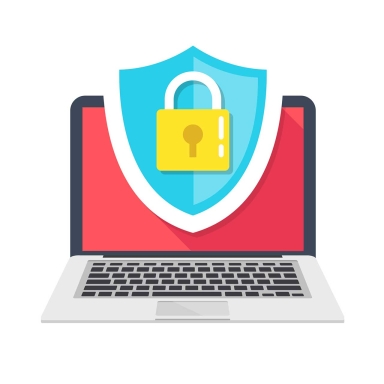Cybersecurity for business

As cyber criminals become more sophisticated, businesses need to become more vigilant and proactive to reduce their risks. Put a plan in place to protect your business now, starting with these suggestions from the Federal Communications Commission (FCC).
Enhance cybersecurity training for employees
The best way to protect your business is with a full-team approach, which means anyone working with you needs to proactively help you protect your assets. Basic security practices and policies must be part of the onboarding process for employees, including choosing strong passwords, appropriate internet use guidelines, and information to help them handle and protect customer data.
Lock down your information, computers and networks from cyberattacks
Make sure all your computers have the latest security software, web browser and operating system to protect against viruses, malware and other cyber threats. Also, be sure to install software updates as soon as they’re available.
Activate and maintain firewalls
Use your computer’s operating system firewall or install free firewall software available online. Make sure any remote team members are using computers protected by a firewall.
Monitor mobile devices
Mobile devices are convenient, but they also pose significant security risks—especially if your employees use personal phones to handle confidential information or sensitive company data. At the very least, password-protect devices, encrypt data and install security apps as a preventative measure.
Back up business data and information regularly
It goes without saying (at least it should) that you need to back up the data on all company computers in the cloud. This will prevent you from losing valu-able data should your network get hacked or should you need to access archived files at a later date.
Control physical access at the employee level
Laptops are an easy target for cyber and regular theft, so make sure your employees don’t leave them unattended. Create a separate user account for each employee and require them to use strong passwords. Provide administrative privileges only to trusted IT staff and key personnel. The FCC also advises, “Employees should only be given access to the specific data systems that they need for their jobs and should not be able to install any software without permission.”
Secure your Wi-Fi networks
If you use a Wi-Fi network for your business, it’s imperative to make sure it’s secure, encrypted and hidden from potential cybercriminals. To hide your Wi-Fi network, set up your wireless access point or router so it doesn’t broadcast the network name, known as the Service Set Identifier (SSID). Then password-protect access to the router.
Reduce exposure to financial fraud
The most frequently targeted third-party vendors your business likely works with are banks, credit unions, payment processors and other financial services providers. Work with them to leverage their cybersecurity capabilities (e.g., two-factor authentication, cloud-based platforms).
If you implement the above tactics for your business, you’ll significantly reduce your risk of cyberattacks. However, keep in mind that even if you take preventive and proactive action, you’ll need to remain vigilant and train your employees to be aware of suspicious activity and the types of attacks they could fall prey to.
If you need additional assistance with cyber-security, you may want to engage the help of a cybersecurity expert.
Back to issue







